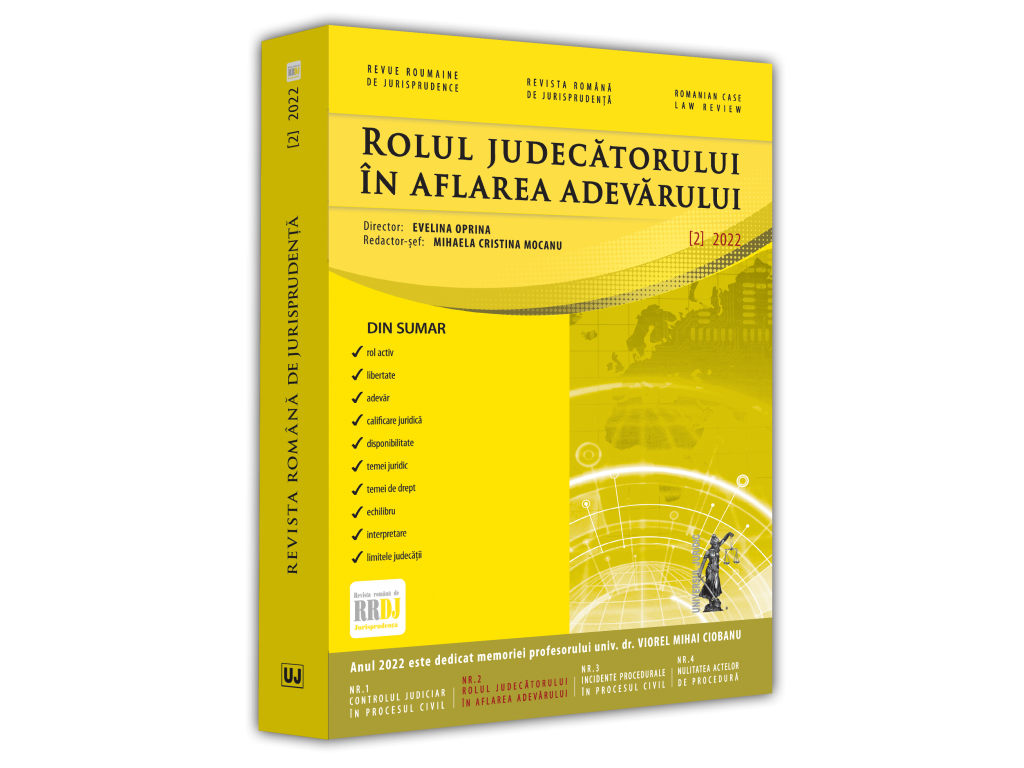Lack of mandatory procedural co-participation. Remedies and consequences
DEZBATERI
Abstract
In the present study we set out to examine the issue of necessary litigation and the consequences arising from it. In this regard, after a brief review of the principle of availability of the subjective procedural framework, the analysis turned to the institution of mandatory procedural co-participation, highlighting its particularities and the distinctions to be drawn between its various forms. The potential remedies available for the situation where the application has not adequately configured the procedural framework from the perspective of compulsory joinder were then analysed, with brief references to the possibility of amending the application, the forms of intervention available to the parties and, finally, the compulsory introduction of the third party ex officio. The final part is devoted to the reflection of the necessary litigation in the appeal, highlighting the challenges involved and, in particular, the limits within which the court of appeal can remedy the deficiencies found in this respect.
In essence, the study aims to point out that a distinction must be drawn between, on the one hand, the lack of mandatory procedural co-participation and, on the other hand, the provisions of Article 78 of the Civil Procedure Code, which constitute a simple remedy for the lack of mandatory procedural co-participation. We also wanted to point out that Article 78 of the Civil Procedure Code implies two sentences with a different substantive legal regime, which is also reflected in the possibilities available to appeal.
Keywords: mandatory procedural co-participation, art. 78 Civil Procedure Code, active role, appeal, remedies.








